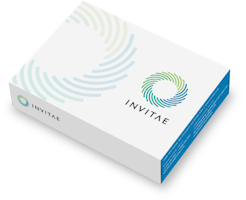
Invitae Common Hereditary Cancers + RNA Panel
Test code: 144140 •
Test description
The Invitae Common Hereditary Cancers + RNA Panel analyzes genes associated primarily with adult-onset, nonsyndromic predisposition to cancers of the breast, ovary, uterus, prostate, and gastrointestinal system. In addition, RNA testing is performed to help identify and interpret DNA variants in 40 genes from this panel. The genetic heterogeneity associated with these cancer types can make it difficult to use phenotype as the sole criterion to select a definitive cause. Given the clinical overlap of these conditions, broad panel testing allows for an efficient evaluation of several potential genes based on a single clinical indication. Some genes in this test may also be associated with additional unrelated conditions, which are not included in the list of disorders tested. Genetic testing of these genes may help confirm a clinical diagnosis, help predict disease prognosis and progression, facilitate early detection of symptoms, inform family planning and genetic counseling, or promote enrollment in clinical trials.
This test is specifically designed for heritable germline mutations and is not appropriate for the detection of somatic mutations in tumor tissue.
Ordering information
Turnaround time:
10–21 calendar days (14 days on average)New York approved:
YesPreferred specimen:
3 mL whole blood in a purple-top EDTA tube and 1.5 mL whole blood in a PAXgene RNA tube.Learn more about specimen requirementsRequest a specimen collection kitClinical description
To view the complete clinical description of this panel, click here.
Assay information
Invitae is a College of American Pathologists (CAP)-accredited and Clinical Laboratory Improvement Amendments (CLIA)-certified clinical diagnostic laboratory performing full-gene sequencing and deletion/duplication analysis using next-generation sequencing technology (NGS).
DNA Testing:
Our sequence analysis covers clinically important regions of each gene, including coding exons and 10 to 20 base pairs of adjacent intronic sequence on either side of the coding exons in the transcript listed below. In addition, the analysis covers the select non-coding variants specifically defined in the table below. Any variants that fall outside these regions are not analyzed, unless RNA analysis points to an important variant outside of this range. Any limitations in the analysis of these genes will be listed on the report. Contact client services with any questions.
Based on validation study results, this assay achieves >99% analytical sensitivity and specificity for single nucleotide variants, insertions and deletions <15bp in length, and exon-level deletions and duplications. Invitae's methods also detect insertions and deletions larger than 15bp but smaller than a full exon but sensitivity for these may be marginally reduced. Invitae's deletion/duplication analysis determines copy number at a single exon resolution at virtually all targeted exons. However, in rare situations, single-exon copy number events may not be analyzed due to inherent sequence properties or isolated reduction in data quality. Certain types of variants, such as structural rearrangements (e.g. inversions, gene conversion events, translocations, etc.) or variants embedded in sequence with complex architecture (e.g. short tandem repeats or segmental duplications), may not be detected. Additionally, it may not be possible to fully resolve certain details about variants, such as mosaicism, phasing, or mapping ambiguity. Unless explicitly guaranteed, sequence changes in the promoter, non-coding exons, and other non-coding regions are not covered by this assay. Please consult the test definition on our website for details regarding regions or types of variants that are covered or excluded for this test. This report reflects the analysis of an extracted genomic DNA sample. In very rare cases, (circulating hematolymphoid neoplasm, bone marrow transplant, recent blood transfusion) the analyzed DNA may not represent the patient's constitutional genome.
RNA Testing:
RNA sequencing covers the entire coding region of the genes and transcripts indicated for this test. RNA sequencing data is used to detect splicing alterations in a patient sample. The analytical sensitivity and specificity of this test is >95%. Results from this RNA test are used to support the interpretation of DNA variants, and are not intended to be used as a stand-alone diagnostic test. At this time, results from this RNA test may not be informative for interpreting copy number events. Additionally, sensitivity to detect RNA splicing events may be reduced for variants in the first donor site of each gene. In cases where the RNA test informs the interpretation of a DNA variant, details about the RNA results will be provided in the clinical report. In cases where the RNA sample fails, details about the DNA results will be provided in the clinical report and new samples will be accepted for repeat DNA + RNA analysis.
You can customize this test by clicking genes to remove them.
Primary panel
Common Hereditary Cancers Genes Eligible for RNA Analysis
RNA testing is performed to help identify and interpret DNA variants in 40 hereditary cancer genes.
Question about billing?
Find answers